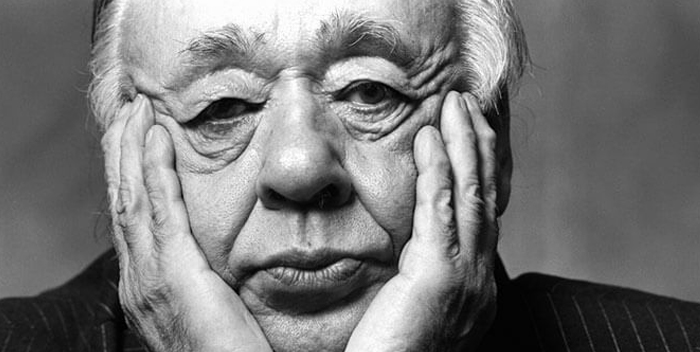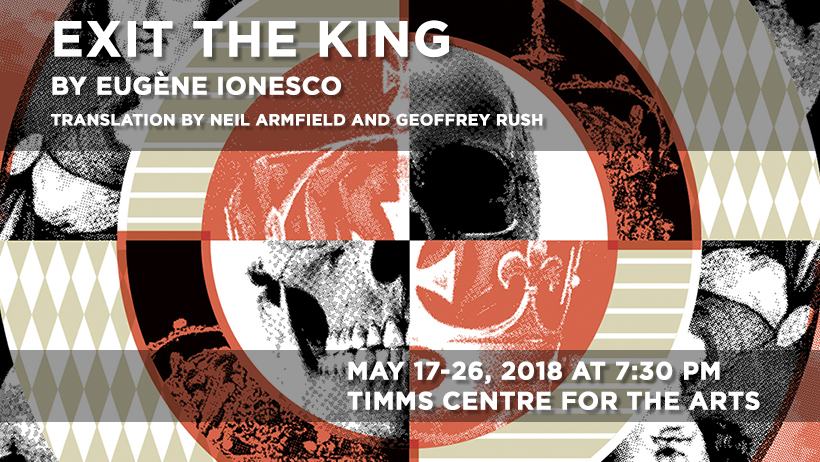
From Exit the King dramaturgical notes by Tonya Rae Chrystian
The play you are about to witness asks you to confront the inevitability of natural death, but not to worry, you will have ample warning and time to prepare.
The play is also very funny, but that is to be expected.
To begin, the dramaturgies of Franco-Romanian playwright, Eugène Ionesco, are some of the most influential, immersing themselves in the semi-solid realms of surrealism, absurdism, and existentialism. For Ionesco, the boundless mystère of the cosmos can induce an incapacitating amount of anxiety as we search for answers in an answerless universe.
However, that doesn’t mean there aren’t any laughs to be had in our wondering. As Nancy Lane construes, “Ionesco’s life, like his work, can best be understood as the product of conflicts, contradictions, and dichotomies,” haunted by a life-long apprehension at the meaninglessness that underlies human existence and language. Yet despite this angst, the soulful, kindly, and deeply melancholic Ionesco is oft described as a natural clown by those who know him best.

Young Ionesco
Born in 1909 in Slatina, Romania, to a French mother and an abusively-inclined Romanian father, little Eugène very soon became a child of divorce. Living in France with his single mother to whom he was very attached, the young Ionesco was forced to leave his mother’s care and return to Romania because his father won him in a custody battle.
Shortly after his arrival, Ionesco describes a memory of his fascist father beating an elderly Jewish woman, thus beginning his merciless denouncement of ideological thugs including Nazis, communists, and radical liberal journalists, as can be detected throughout his plays and critical essays. Furthermore, this experience of exile gave Ionesco a heightened awareness of death that ofttimes made him feel impotent, isolated, and depressed, interrupted by brief, semi-mystical experiences of brightness and celestial light.
Despite this fear of death and the slippage of time, Ionesco lived to a great age. At 82 years old, suffering from extreme joint pain, Ionesco passed away in Paris on March 28, 1994, survived by his wife Rodica Burileanu, and his daughter Marie-France; the epigraph on his tombstone reads “pray to the I-don’t-know-who: Jesus Christ, I hope.”

Eugène Ionesco
Although he lived in Paris for most of his life, claimed France as his homeland, and wrote predominantly in French, Ionesco is considered one of Romania’s greatest artists. Having created such masterworks as The Bald Soprano (1948), The Chairs (1951), The Killer (1957), Rhinoceros (1958), and, of course, Exit the King (1962), Eugène Ionesco was elected to the French Academy on January 22, 1970.
However, unlike his absurdist contemporary, the Irish playwright Samuel Beckett, Ionesco would never receive a Nobel prize for literature – a deep oversight in our shared dramaturgical heritage.
Stay tuned for Inside Exit the King Part 2: Creating the King

EXIT THE KING
May 17-26, 2018
Timms Centre for the Arts
Tickets & Information
![]() Previous article5 Things You Might Not Know About GershwinNext article
Previous article5 Things You Might Not Know About GershwinNext article![]() Inside “Exit the King” Part 2: Creating the King
Inside “Exit the King” Part 2: Creating the King

